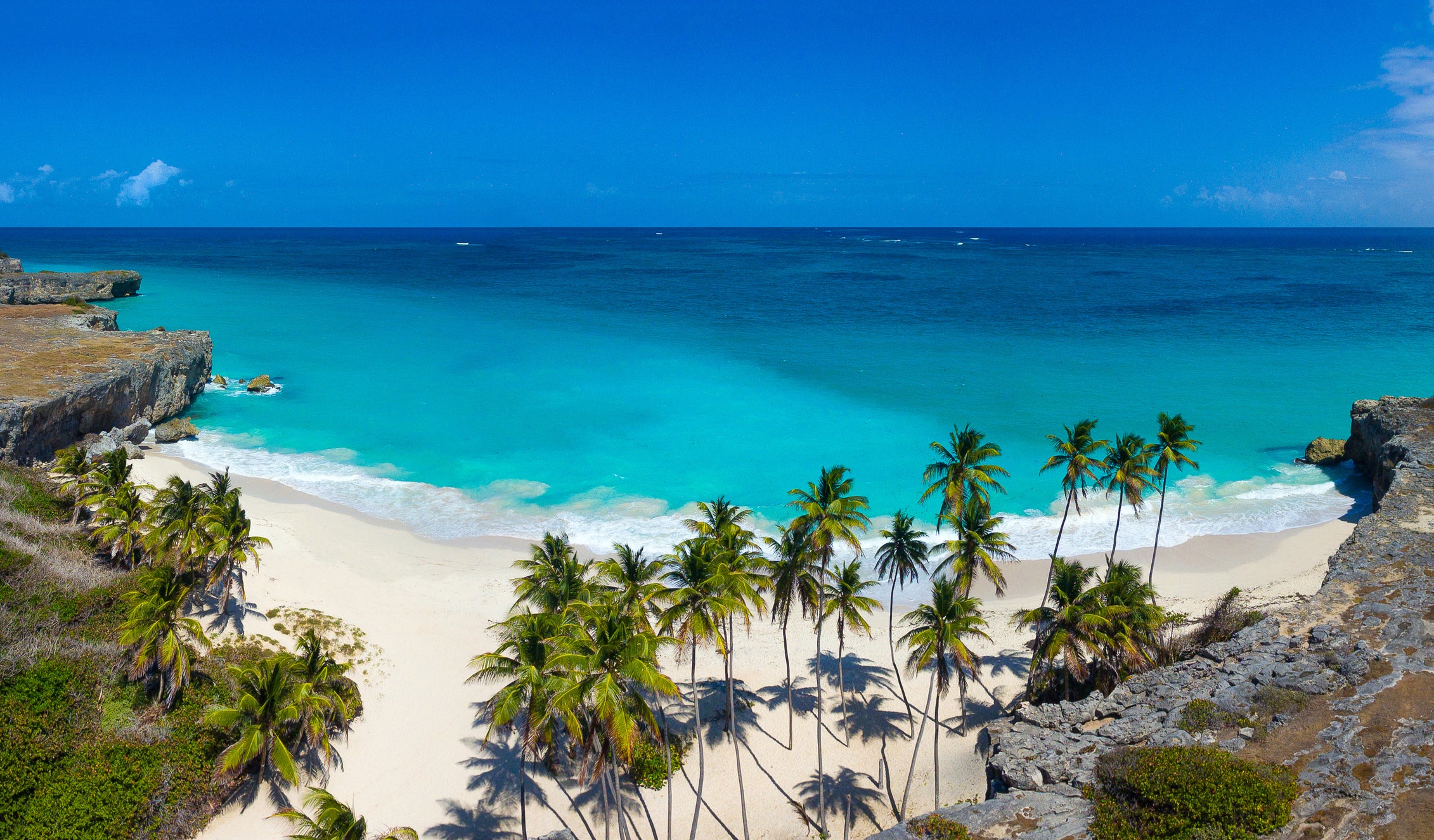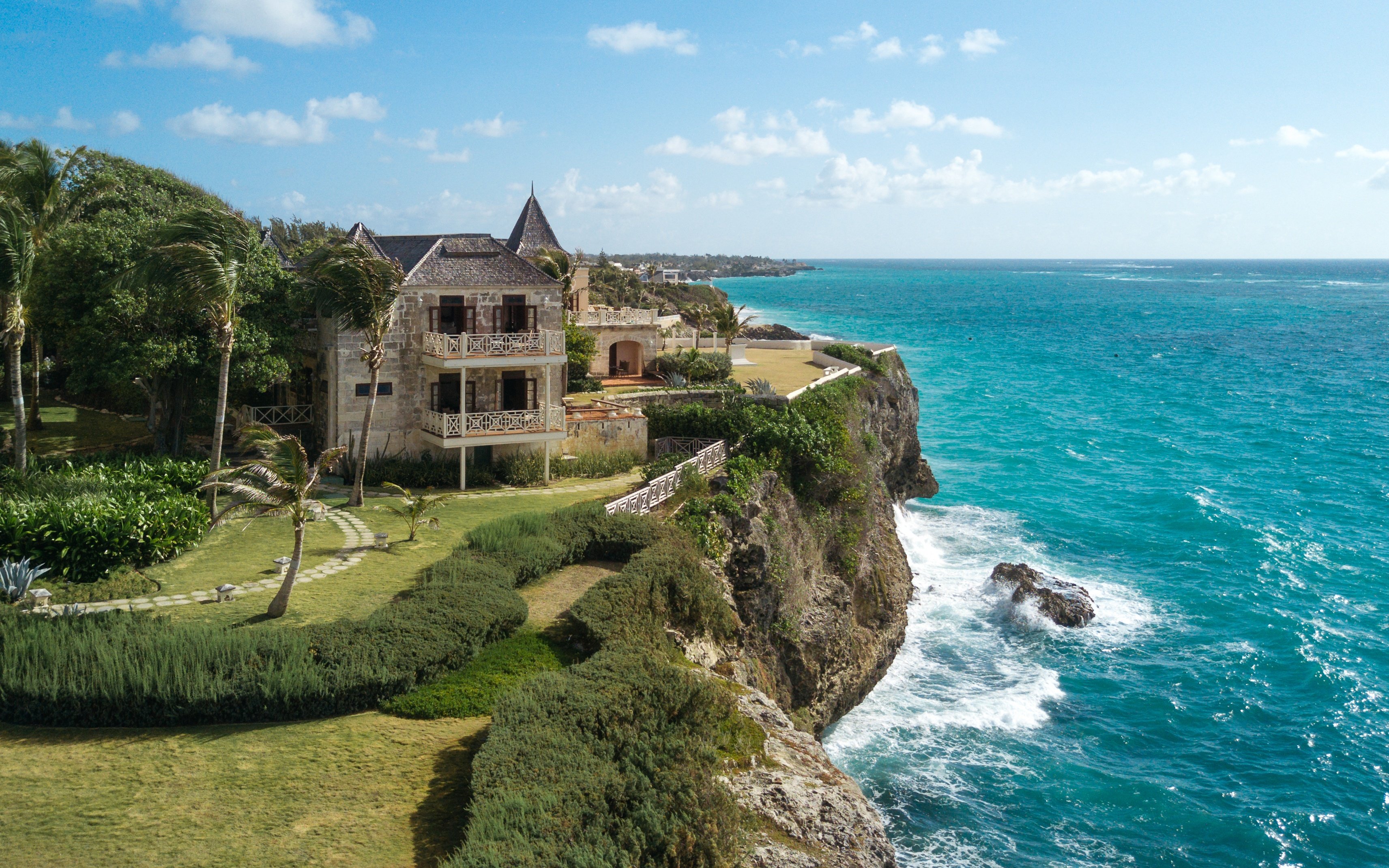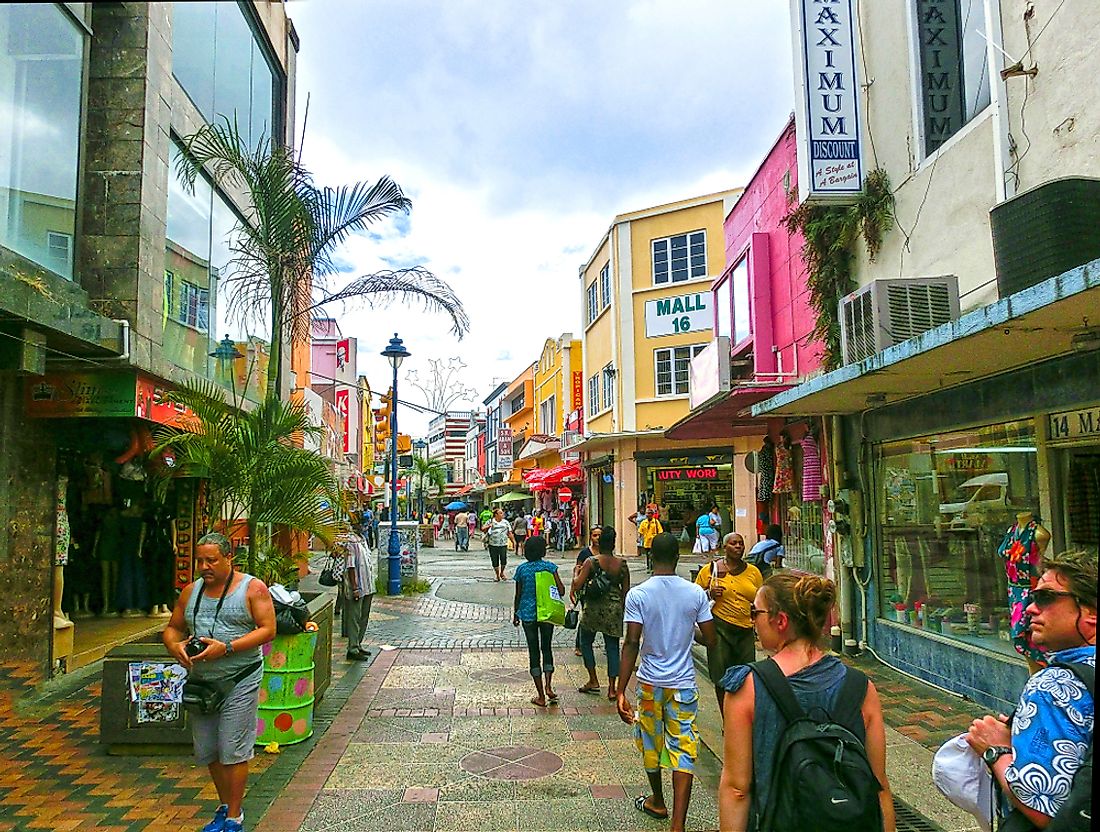Incorporate A Company In Barbados In 2025

Barbados, a stunning island nation in the Caribbean, is renowned for its turquoise waters, white sandy beaches, and vibrant culture. It enjoys political stability, robust governance, and a diverse economy driven by tourism, international business, and agriculture, particularly sugar cane and rum production. English is the official language, and the island’s warm hospitality has cemented its reputation as a premier travel destination.
Standard of Living in Barbados
Barbados boasts one of the highest standards of living in the Caribbean. The Human Development Index (HDI) places it among the most developed small island nations globally.

Housing options range from luxurious beachfront villas to modest apartments, catering to various income levels. However, the cost of living can be relatively high, with imported goods and utilities being notable expenses. Public transportation is affordable and efficient, complemented by a well-maintained road network. The Barbadian community values safety, inclusivity, and sustainability, which contribute to the overall quality of life.
Personal Taxes in The Barbados
The Barbadian tax system is progressive, with rates that vary depending on income levels. Residents are taxed on their worldwide income, while non-residents are taxed only on income sourced within Barbados.
- Income Tax: The personal income tax rate is progressive, with a 12.5% rate on the first BBD 50,000 (approximately USD 25,000) of taxable income and 28.5% on income exceeding this threshold.
- Allowances and Deductions: Tax relief is available for various expenses, including mortgage interest, contributions to registered retirement plans, and medical expenses.
- Value-Added Tax (VAT): VAT is levied at a standard rate of 17.5% on goods and services, with certain essentials like basic food items exempted or zero-rated.
Barbados does not impose taxes on wealth, inheritance, or gifts, making it a favourable jurisdiction for individuals with diverse financial portfolios.
Corporate Taxes in Barbados
Barbados is a recognised hub for international business, with a tax regime designed to attract foreign investment.
- Corporate Tax Rates: The corporate income tax rate ranges from 1% to 5.5%, depending on the level of taxable income. The lower rates apply to international business companies (IBCs) and entities operating in special economic zones.
- Tax Incentives: Barbados offers a host of incentives, including exemptions from import duties, withholding taxes, and stamp duties for qualifying businesses.
- Double Taxation Treaties: The island has an extensive network of double taxation treaties, providing relief for businesses and individuals engaged in cross-border trade and investments.
Major Industries in The Barbados
Barbados is a thriving Caribbean nation known for its diverse economy that extends beyond its picturesque beaches and tourism. The island’s major industries include:
- Tourism and Hospitality
Tourism remains the cornerstone of the Barbadian economy. The hospitality sector is a significant employer and contributes heavily to GDP through accommodation, food services, and recreational activities. - International Business and Financial Services
Barbados has established itself as a hub for international business and financial services. Its favorable tax environment, skilled workforce, and extensive network of double taxation treaties make it an attractive destination for multinational corporations and offshore businesses. - Agriculture and Agro-Processing
While its economic dominance has waned, agriculture still plays a vital role, particularly the production of sugar cane, rum, and other export-oriented products. The agro-processing industry is growing, creating value-added products like packaged foods and beverages. - Renewable Energy
With a focus on sustainability, Barbados is investing in renewable energy, particularly solar and wind power. The government has set ambitious goals to transition to 100% renewable energy by 2030, creating opportunities for businesses in green technology. - Construction and Real Estate
A burgeoning real estate market driven by tourism, expatriates, and retirees supports the construction industry. High-end villas, resorts, and residential developments are in high demand.
Inflation and Cost of Living in The Barbados
Barbados boasts one of the highest standards of living in the Caribbean, but this comes with a relatively high cost of living. Inflation rates in recent years have ranged from 4% to 6%, influenced by global economic conditions and import reliance.
- Housing
Housing costs can vary widely. Renting a one-bedroom apartment in the city center costs approximately BBD 1,800–2,500, while suburban areas are slightly more affordable. - Food and Groceries
Imported goods dominate grocery shelves, leading to higher prices. Basic necessities like milk, bread, and fresh produce are relatively expensive, although local markets offer some budget-friendly options. - Utilities and Transportation
Electricity and water costs are among the highest in the region due to infrastructure challenges and limited natural resources. Public transportation is affordable and efficient, with buses and minibuses as common options.
Property, Services, and Sales Tax in The Barbados
Barbados employs a combination of taxes to fund public services and infrastructure:
Property Tax
Property owners in Barbados pay an annual tax based on the market value of their property. Rates range from 0.1% to 0.75% depending on the property type (residential, commercial, or vacant land). The government periodically adjusts these rates to align with economic goals.
Types of Business Entities in Barbados
Entrepreneurs in Barbados can establish various types of business entities depending on their objectives and operational scale:
- Sole Proprietorship
This is the simplest form of business, where a single individual owns and operates the entity. It’s ideal for small-scale businesses with minimal legal formalities. - Partnership
Partnerships involve two or more individuals pooling resources and sharing responsibilities. Partnerships can be general or limited, with varying liability structures. - Corporations
Corporations are the most common form of business for larger enterprises. They can be domestic or international, with the latter benefiting from tax advantages under the International Business Companies (IBC) framework. - Non-Profit Organizations
Non-profit entities in Barbados must operate for charitable, educational, or cultural purposes. They benefit from certain tax exemptions. - Limited Liability Companies (LLC)
LLCs offer flexibility and limited liability for their owners. They are commonly used for small and medium-sized enterprises.
Licenses to Start a Business in The Barbados
Starting a business in Barbados involves obtaining the necessary licenses and permits to operate legally:
- Business Registration
All businesses must register with the Corporate Affairs and Intellectual Property Office (CAIPO). This includes registering the business name, entity type, and shareholders. - Trade Licenses
Foreign-owned businesses must obtain a trade license from the Ministry of International Business and Industry. - Sector-Specific Licenses
Depending on the industry, additional permits may be required, such as food safety certifications for restaurants or tourism licenses for hospitality ventures. - Tax Registration
Businesses must register with the Barbados Revenue Authority (BRA) for VAT, corporate tax, and National Insurance Scheme (NIS) contributions.
Opportunities for Expats for Business Growth in The Barbados
Barbados offers a wealth of opportunities for expatriates seeking to establish or grow businesses:
- Tourism Ventures
Expats can explore opportunities in boutique hotels, eco-tourism, or cultural experiences to cater to the growing influx of visitors. - Renewable Energy Projects
The government encourages foreign investment in solar, wind, and waste-to-energy technologies. - Technology and Innovation
The island’s push for digital transformation presents opportunities in IT consulting, software development, and fintech. - Agriculture and Agro-Processing
Expats can leverage modern farming techniques to boost local food production and exports. - Real Estate Development
The demand for luxury villas, condominiums, and commercial properties creates lucrative opportunities for developers.
Barbados’ supportive investment climate, coupled with its stable political environment, makes it an attractive destination for expat entrepreneurs.
Citizenship for Expats in Barbados
Expats seeking long-term opportunities in Barbados may explore paths to residency and citizenship:
- Permanent Residency
Expats who have legally resided in Barbados for at least five years can apply for permanent residency. This status allows them to live and work in Barbados without requiring work permits. - Citizenship by Naturalization
After seven years of continuous residency, expats may apply for Barbadian citizenship. This involves demonstrating financial stability, good character, and commitment to the country. - Special Entry and Reside Permit (SERP)
High-net-worth individuals with significant investments in Barbados can apply for the SERP, which grants long-term residency without the need for citizenship.

Barbados also supports dual citizenship, enabling expats to retain their original nationality while becoming Barbadian citizens.
Why Register a Company in The Barbados?
- Favorable Tax Regime
Barbados offers one of the most competitive tax frameworks globally, especially for international businesses. With corporate tax rates as low as 1%–5.5%, the country is a tax-efficient jurisdiction that complies with global tax standards. Double taxation treaties with several countries provide additional tax relief. - Political and Economic Stability
The country boasts a stable political environment and a well-regulated economy. Barbados has a strong legal framework that supports business operations, ensuring investor confidence and long-term growth. - Strategic Location
Positioned as a gateway to North and South America, Barbados provides easy access to regional markets. Its proximity to the United States and Canada enhances its appeal as a business hub. - Skilled Workforce
With a literacy rate exceeding 99%, Barbados has a highly educated and skilled workforce. This makes it an attractive destination for businesses requiring specialized skills. - Ease of Doing Business
Barbados has simplified its business registration process to encourage entrepreneurship. The government actively promotes foreign investment by reducing bureaucratic hurdles and offering incentives for industries like tourism, renewable energy, and financial services.
How to Register a Company in The Barbados
Setting up a company in Barbados involves several straightforward steps:
- Choose a Business Name
Select a unique name for your company and check its availability with the Corporate Affairs and Intellectual Property Office (CAIPO). - Determine the Business Structure
Decide on the type of entity you want to register, such as a sole proprietorship, partnership, corporation, or limited liability company (LLC). International Business Companies (IBCs) are also an option for foreign investors. - Prepare the Required Documents
Documents needed include:- Articles of Incorporation
- Company bylaws
- Director and shareholder information
- Proof of registered office address
- Register with CAIPO
Submit the required documents and register your business with CAIPO. This step formalizes your company’s existence. - Tax Registration
Register your business with the Barbados Revenue Authority (BRA) for tax purposes, including Value-Added Tax (VAT) and corporate income tax. - Obtain Licenses and Permits
Depending on your business type, you may need additional licenses or permits. For example, tourism and hospitality ventures require sector-specific approvals.
Cost to Register a Business in The Barbados
The cost of registering a business in Barbados varies depending on the business structure and associated licenses. Typical expenses include:
- Registration Fees
The registration fee for a local company starts at around BBD 750. For IBCs or foreign-owned entities, fees range from BBD 1,500 to BBD 2,500. - Annual Maintenance Costs
Companies are required to pay annual renewal fees and file financial statements with the authorities. These fees typically range from BBD 500 to BBD 1,000. - Professional Services
Legal and accounting assistance may be necessary to navigate the registration process. These services can cost an additional BBD 1,000 to BBD 5,000, depending on the complexity of your business. - Licenses and Permits
Sector-specific licenses can range from BBD 500 to BBD 5,000 annually, depending on the industry. - Miscellaneous Costs
Expenses for opening a corporate bank account, notarizing documents, and securing a registered office address add to the overall cost.
Relation with Other Countries of The Barbados
Barbados maintains strong diplomatic and economic ties with numerous countries, making it an attractive hub for international businesses.
- Double Taxation Treaties
Barbados has signed over 40 double taxation agreements (DTAs) with countries like Canada, the United States, the United Kingdom, and China. These treaties prevent businesses and individuals from being taxed twice on the same income, enhancing its appeal to foreign investors. - Membership in International Organizations
Barbados is a member of CARICOM (Caribbean Community), the Commonwealth, and the Organization of American States (OAS). These affiliations provide access to regional trade agreements and collaborative opportunities. - Economic Partnerships
Barbados has an Economic Partnership Agreement (EPA) with the European Union, allowing duty-free and quota-free access to European markets. The island also engages in bilateral trade agreements with countries in Latin America and the Caribbean.
Any Other Taxes in The Barbados
In addition to corporate and income taxes, businesses and individuals in Barbados are subject to other taxes:
- National Insurance Contributions
Employers and employees contribute to the National Insurance Scheme (NIS) to fund social security benefits like pensions and unemployment insurance. - Stamp Duty
Stamp duty is imposed on legal documents, such as property transactions and corporate filings. - Import Duties
Import taxes are levied on goods brought into the country. Rates vary based on the type of goods and their value.
Living in Barbados: Social Security, Weather, Safety, and Opportunities
Barbados, a picturesque Caribbean island, offers a high quality of life, marked by its social security measures, pleasant climate, safety, and opportunities for personal and professional growth. For locals and expatriates alike, the island is an excellent choice for residence, thanks to its supportive systems and vibrant environment.
Social Security in The Barbados
Barbados boasts a robust social security system designed to provide financial stability and support to its citizens and residents. Managed by the National Insurance Scheme (NIS), the system covers a wide range of benefits:
- Pensions and Retirement Benefits
Employees and employers contribute to the NIS, ensuring financial assistance for retirees, widows, and dependents. - Health and Maternity Benefits
The social security system provides maternity allowances, sickness benefits, and medical assistance for workers. - Unemployment Benefits
Workers who lose their jobs can access unemployment benefits to ease financial strain while seeking new employment. - Disability and Survivor Benefits
Financial support is extended to individuals with disabilities and families of deceased contributors.

This comprehensive system ensures social and economic stability, creating a supportive environment for residents.
Weather and Climate in Barbados
Barbados enjoys a tropical climate characterised by warm temperatures year-round, making it a haven for those who love sunny weather.
- Rainfall
The rainy season typically occurs from June to November, with occasional tropical showers. Despite this, the island experiences over 3,000 hours of sunshine annually. - Hurricane Preparedness
Located in the Atlantic hurricane belt, Barbados has established strong disaster management protocols to ensure citizen safety during hurricane season.
Regional Safety and Security
Barbados is recognized as one of the safest Caribbean nations. Its political stability, low crime rates, and strong law enforcement make it an attractive destination for residents and tourists.
- Low Crime Rates
While petty crimes like theft occur occasionally, violent crime is rare. Police presence and community policing initiatives enhance security. - Emergency Services
The country is equipped with efficient emergency services, including police, fire, and medical response teams. The Barbados Defence Force also plays a role in maintaining regional security. - Natural Disaster Management
The government has implemented disaster preparedness programs to protect citizens during hurricanes and other natural disasters, ensuring swift recovery and safety.
The island’s emphasis on safety contributes to its high standard of living, fostering a sense of security for its residents.
Passport Power of Barbados
Barbados offers one of the most powerful passports in the Caribbean, granting its citizens visa-free or visa-on-arrival access to over 160 countries. This global mobility underscores the island’s strong international relationships and enhances opportunities for its citizens.
- Visa-Free Travel
Barbadians can travel visa-free to destinations including the United Kingdom, Canada, and the Schengen Area. - Global Standing
The Barbados passport ranks highly on the Henley Passport Index, reflecting its strength and ease of travel for its holders.
This passport power is a significant benefit for Barbadian citizens, enabling global connectivity and opportunities for education, business, and leisure.
Scope of Education and Growth in The Barbados
Barbados prioritizes education, offering free public schooling from primary to tertiary levels. This commitment has resulted in a literacy rate exceeding 99%, one of the highest in the world.

- Primary and Secondary Education
The island provides free and mandatory education for children aged 5 to 16. Schools focus on academic, artistic, and athletic development. - Tertiary Education
Institutions like the University of the West Indies (UWI) and the Barbados Community College (BCC) offer higher education opportunities. Government scholarships and financial aid make tertiary education accessible. - Vocational Training
Technical and vocational training programs equip individuals with practical skills in fields like hospitality, construction, and technology, enhancing employability. - Professional Growth
Barbados’ diverse economy, driven by tourism, international business, and renewable energy, provides ample opportunities for career advancement. - Cultural and Personal Development
The island’s rich cultural heritage and vibrant arts scene encourage personal growth. Festivals, music, and community events offer residents an immersive cultural experience.






